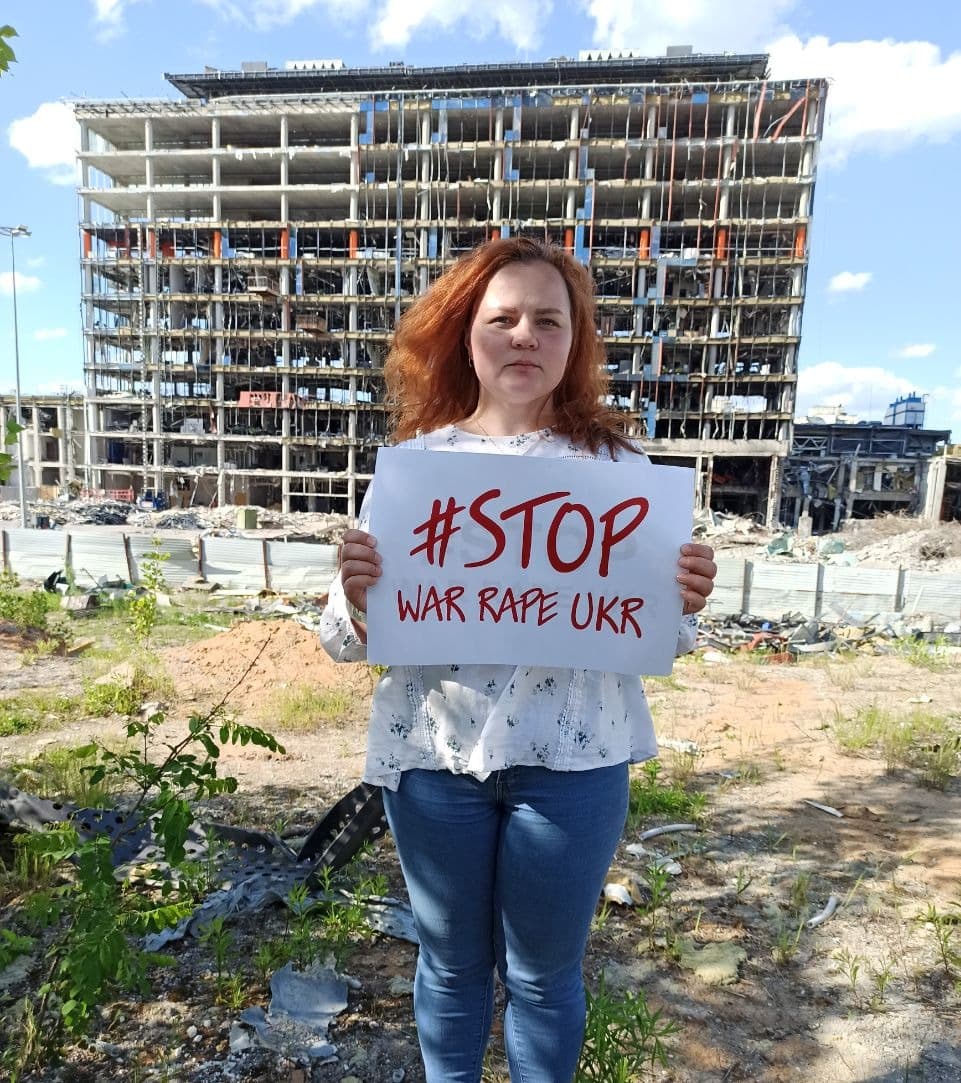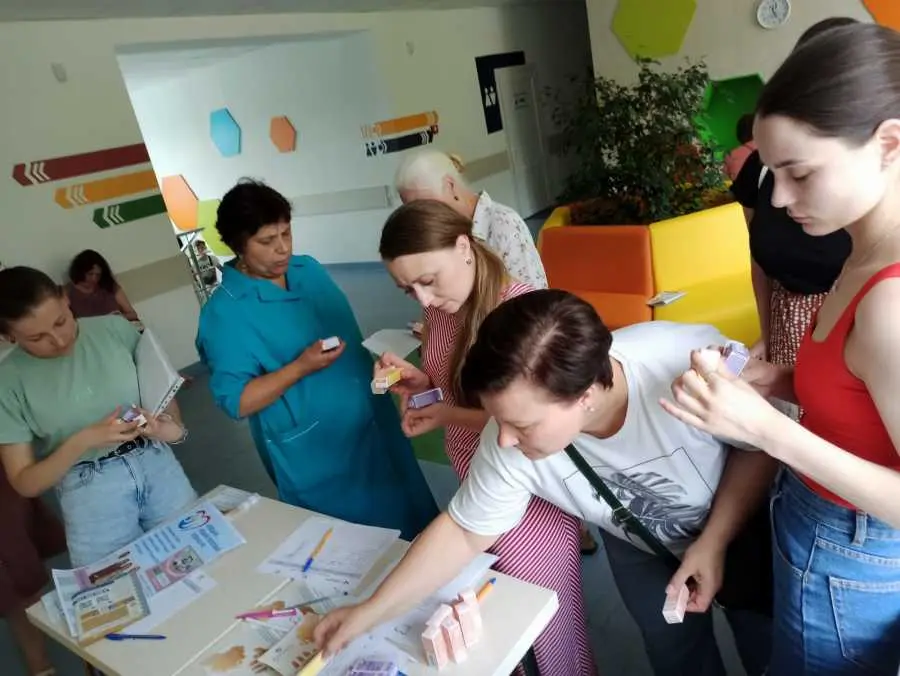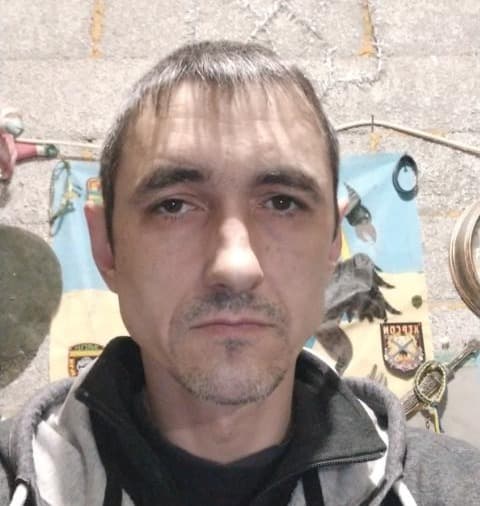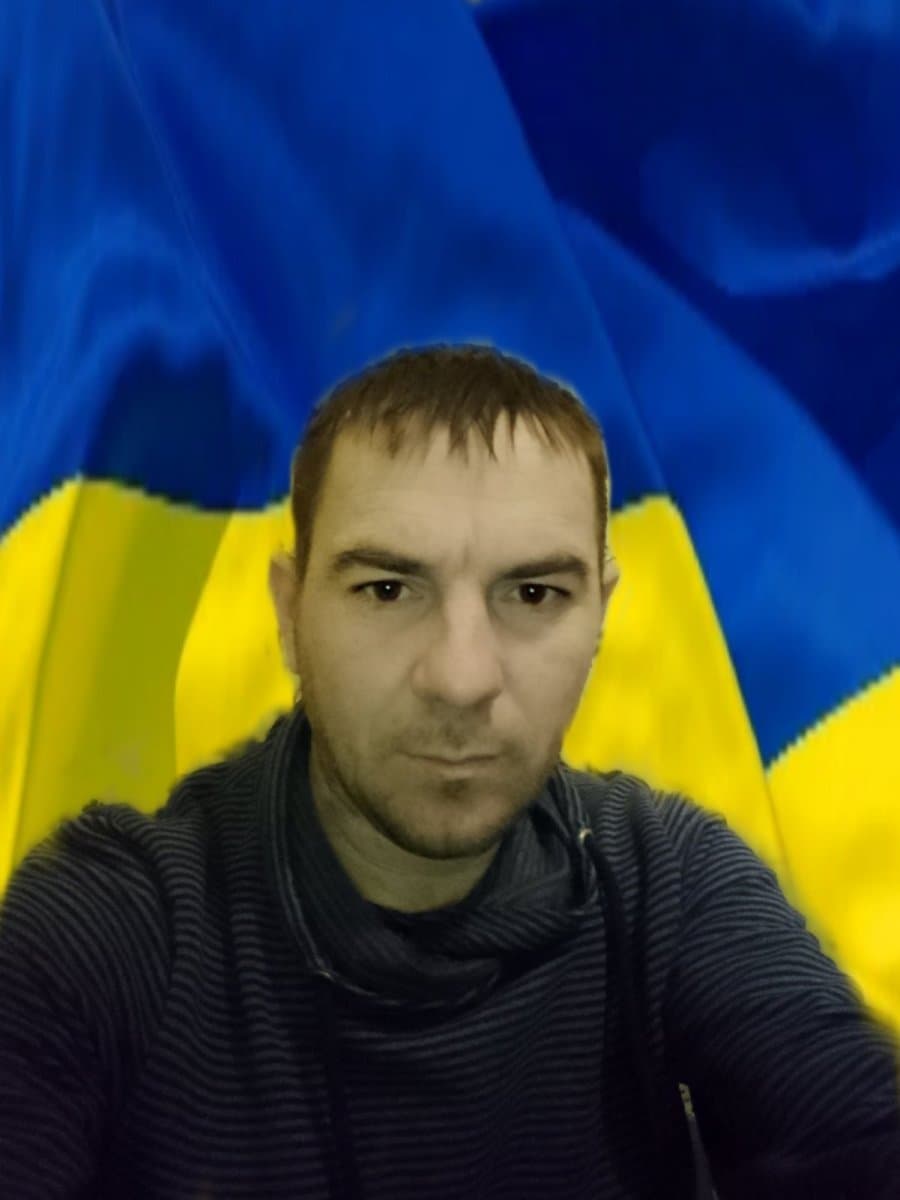“My time in captivity ruined my life” - Survivors of sexual violence in Ukraine facing ongoing trauma
After two years of war, many victims of sexual violence in Ukraine are facing ongoing psychological effects, and fear being forgotten.
Warning: This article contains descriptions of sexual violence which some people may find upsetting.
At the beginning of the full scale war, Iryna Andreeva and her family fled Kyiv after a rocket struck close to their home. They travelled to a safer part of the country in the West, and stayed in a dormitory with many other women and children.
As they cooked together and sheltered for days on end in a basement, they started to tell Iryna accounts of sexual violence they’d suffered, and atrocities that people they knew had been through.
They told Iryna stories of rape and sexual assault at the hands of Russian forces, and how they’d been forced to strip at checkpoints. One woman from Mariupol spoke about her mother, who had left the house and never returned. Others spoke of women and girls in Bucha being taken from their homes.
This is when Iryna decided - “I can’t hold a gun in my hand, but I can’t just sit and wait for victory. That’s why helping others is my weapon in this war.”

Survivors of sexual violence in Ukraine - Iryna Andreeva - Big Story
Iryna was already the director of the charity The Andreev Family Foundation, which provided medical support to women. Since then, the charity has taken on a new mission - to support survivors of sexual violence.
Now, they have a team of psychologists who travel around areas that have been liberated from Russian occupation, counselling victims of conflict related sexual violence. For occupied areas they can’t reach, they’ve set up hotlines. Their ‘Women Resilience Clubs’ create spaces for women to get together, talk about what happened to them, and start to rebuild.
The Foundation has worked with 113 people who were victims of conflict related sexual violence, and more than 3,000 women and children who’ve been hit by its ripple effects.
A 'Women Resilience Club'
Iryna spoke to The News Movement alongside Anna Orel, who also works for the foundation. Anna and Iryna say that although many of the women they’ve worked with experienced sexual violence at the start of the war, a new challenge for the charity is how to support people with the ongoing psychological effects. For some, they say, the mental trauma is getting worse because of repeated flashbacks.

There are also the women who have remained silent until recently, “these women who keep silent, they are stuck in the past”, says Anna. According to Iryna, “survivors of war in Ukraine tell us they don’t know how to deal with what’s happened to them. They speak about losing the will to live, a “black void” and struggling to look after themselves and their children.”
According to information from Ukraine’s prosecutor general and anecdotal evidence collected by the United Nations Population Fund (UNFPA), the majority of sexual violence has been carried out against women. However, in around a third of cases, the victims are male.
The Andreev Foundation has also been supporting some of these men with their ongoing psychological struggles, including Olexiy and Roman who were both taken captive in Kherson.
The victims
When I ask Olexiy to tell me what was done to him during his time held captive by Russian forces, he gently laughs and says “it would be easier to tell you what they didn’t do”.
Olexiy is one of potentially hundreds of people who’ve experienced sexual violence during two years of full-scale war in Ukraine. He was taken captive along with his neighbour Roman on August 24th 2022, around six months after the invasion. They were both civilians - Olexiy was a sailor and Roman a taxi driver.
The two friends had put out Ukrainian national flags to celebrate a public holiday. They live in Kherson which, at the time, was occupied by Russian forces. Russian agents raided both their homes, and took them into captivity where they both say they faced torture and sexual violence. Russia has always denied any accusations of torture and war crimes.
Speaking through a translator, they described the mental trauma of mock executions and physical trauma of having electric wires wrapped around their genitals, attached to a machine called a Dynamo.
The shock waves were sent through their bodies with increasing strength. “It was like a game to them”, says Olexiy, referring to his Russian captors. Roman said “they started with my ears, when that wasn’t enough they attached the wires to my genitals.”
Olexiy heard the screams of other prisoners, men and women, who he says were sexually assaulted with bottles and police batons.

Olexiy
Roman was held captive for 57 days and Olexiy 54. Olexiy says anyone held in that prison can tell you the exact number of days they were there.
Although they were both released, for both Olexiy and Roman, the trauma is ongoing. When I asked Olexiy what that looked like day to day, he replied simply “my time in captivity has ruined my life.”
Roman too speaks about his daily struggles, almost eighteen months after being released. He says he’s experienced a “very huge impact psychologically”, “now I am afraid of people in uniform, even security guards at the grocery shop”. The trauma affects him physically too, and he lives with an uncontrolled tremor in his arm.

Roman
The hidden crisis
Sexual violence during war often goes under reported. According to Sara Bowcutt, UK Director of Women for Women International which supports The Andreev Foundation, there are a number of reasons people may not want to report the crime. Some are worried about retaliation, and the risk it poses to their family. Others are afraid of the stigma that may come with speaking out.
Sara says “we're seeing that in Ukraine [where] people are being rejected from communities or shamed”, adding “ many women won't report that this has happened to them. So the indication is that this is widespread and a big issue in this specific conflict.”
When victims do come forward, they’re able to to “access services, they're able to deal with some of that trauma, and then able to take more of an active part in their lives.” Women for Women International run 12 month training programmes across eight countries, to help women impacted by conflict understand their rights, get support, then receive vocational training so they can earn a living.
Sara says across the world sexual violence during conflict is a way to “control” civilian populations, “if you are an invading force, it affects social cohesion.”
As the war in Ukraine reaches its two year mark, civilians and charities in Ukraine fear being forgotten. According to Sara, “when women feel like they're forgotten, they lose some of that hope that they have to maintain to be able to get through everything that these conflicts throw at them.”
In Ukraine, Iryna and Anna say they will “hold the hands” of victims for years to come and continue to help new victims. Anna adds, “nobody knows what we will discover when other regions - please god - are liberated”.